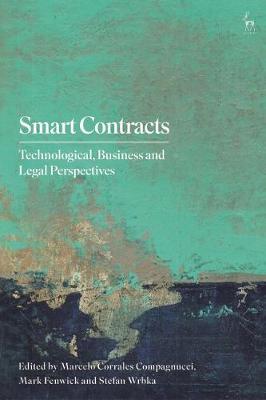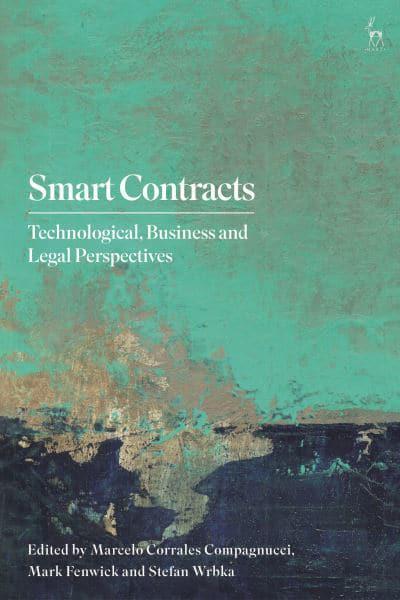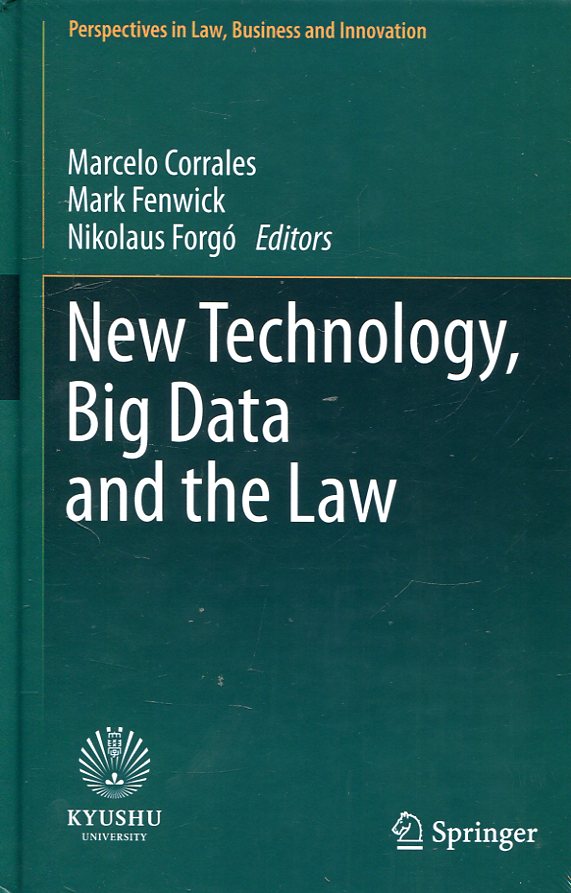Smart contracts
technological, business and legal perspectives
- ISBN: 9781509937028
- Editorial: Hart Publishing
- Fecha de la edición: 2021
- Lugar de la edición: Oxford. Reino Unido
- Encuadernación: Cartoné
- Medidas: 24 cm
- Nº Pág.: 204
- Idiomas: Inglés

his book brings together a series of contributions by leading scholars and practitioners to examine the main features of smart contracts, as well as the response of key stakeholders in technology, business, government and the law.
It explores how this new technology interfaces with the goals and content of contract law, introducing and evaluating several mechanisms to improve the 'observability' and reduce the costs of verifying contractual obligations and performance. It also outlines various 'design patterns' that ensure that end users are protected from themselves, prevent cognitive accidents, and translate expectations and values into more user-oriented agreements.
Furthermore, the chapters map the new risks associated with smart contracts, particularly for consumers, and consider how they might be alleviated. The book also discusses the challenge of integrating data protection and privacy concerns into the design of these agreements and the broad range of legal knowledge and skills required.
The case for using smart contracts goes beyond 'contracts' narrowly defined, and they are increasingly used to disrupt traditional models of business organisation. The book discusses so-called decentralised autonomous organisations and decentralised finance as illustrations of this trend.
This book is designed for those interested in looking to deepen their understanding of this game-changing new legal technology.
Introduction: The Technology, Use-Cases and Law of Smart Contracts
Marcelo Corrales Compagnucci, University of Copenhagen, Denmark, Mark Fenwick, Kyushu University, Japan and Stefan Wrbka, University of Applied Sciences for Management and Communication, Austria
1. Contracts: Ex Machina
Kevin Werbach, University of Pennsylvania, USA and Nicolas Cornell, University of Michigan, USA
2. The Fine Print in Smart Contracts
Joshua S Gans, University of Toronto, Canada
3. Smart Contracts and Traditional Contracts: Views of Contract Law
Matti Rudanko, Aalto University, Finland
4. Data Protection Issues for Smart Contracts
W Gregory Voss, TBS Business School, France
5. Proactive Legal Design for Health Data Sharing Based on Smart Contracts
Arianna Rossi, University of Luxembourg and Helena Haapio, University of Vaasa, Finland
6. A Multilayer Safeguard Mechanism to Optimise the Potential of Smart Contracts in B2C Transactions
Stefan Wrbka, University of Applied Sciences for Management and Communication, Austria
7. Feeding Smart Contract Legal Requirements with Semantic and Event Detection Logic Structures from Modern Service-Oriented Supply Chains
Stylianos Tsarsitalidis, University of Athens, Greece, Marcelo Corrales Compagnucci, University of Copenhagen, Denmark, George Kousiouris, University of Athens, Greece and Alan Dahi, Data Protection & Privacy Counsel
8. The Historical Significance of Blockchain and Smart Contracts
Mark Fenwick, Kyushu University, Japan and Erik PM Vermeulen, Tilburg University, Netherlands
9. The Uncertain Future of Smart Contracts
Marcelo Corrales Compagnucci, University of Copenhagen, Denmark, Mark Fenwick, Kyushu University, Japan and Stefan Wrbka, University of Applied Sciences for Management and Communication, Austria










